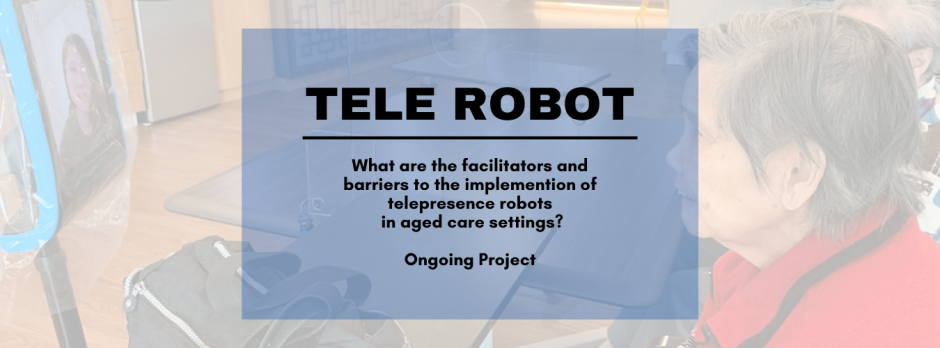

The Telepresence Robot Project
Social isolation is a significant issue in aged care settings. Long-term care (LTC) and hospitals are associated with adverse outcomes such as reduced well-being and loneliness in older adults. Loneliness has been shown to be linked to depression, cognitive decline, and mortality.
With the rates of social isolation having increased among the older adult population during the COVID-19 pandemic, our mitigation efforts are focusing on the use of robotics to help reduce loneliness, and social isolation, and improve quality of life.
The use of mobile telepresence robots helps to enable individuals in different locations to interact with each other from a distance, near or far. Our research results will offer practical guidelines for the safe implementation and ethical use of the robot in LTC homes.
Read below for more details on our research.

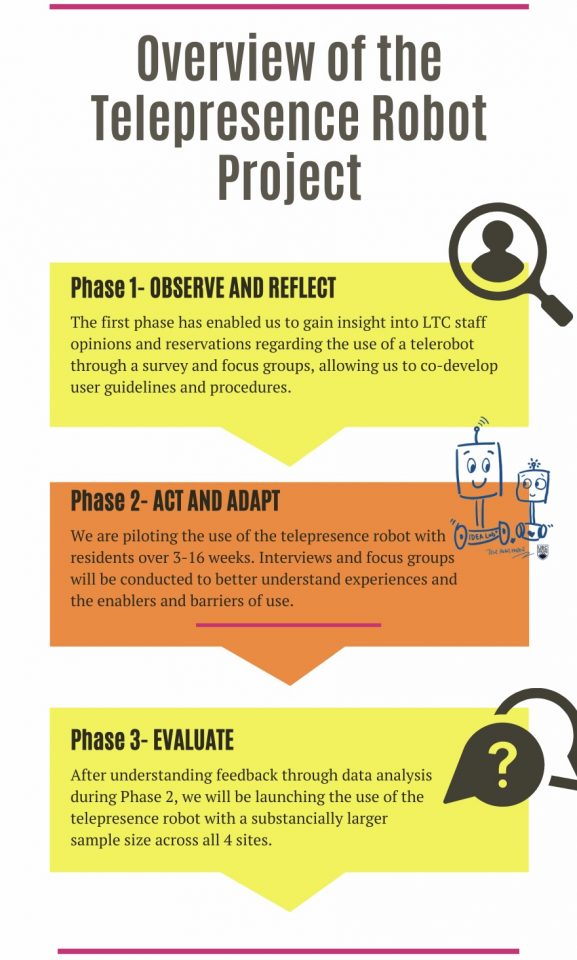
Project Highlights
Members of our team have been actively participating in conferences, info sessions, and media coverage
Telepresence Robot Project in the Media
Global News Oct 13 2021
https://globalnews.ca/news/8261356/robots-long-term-care-residents-vancouver/
CTV News Oct 12 2021 https://bc.ctvnews.ca/visit-with-a-robot-b-c-researchers-test-out-new-way-to-connect-in-long-term-care-1.5620842
City News Oct 13 2021 https://vancouver.citynews.ca/2021/10/13/robots-care-homes-visits/amp/
CHEOS UBC Oct 7 2021 https://www.cheos.ubc.ca/research-in-action/robots-long-term-care/
Vancouverisawesome Oct 12 2021 https://www.vancouverisawesome.com/video/vancouver-medical-project-using-robots-for-virtual-visits-in-long-term-care-video-4505570
Vancouver Coastal Health Research Institute Jan 24 2022 https://www.vchri.ca/participate-research/2022/01/24/company-robots-connecting-older-people-vgh-family
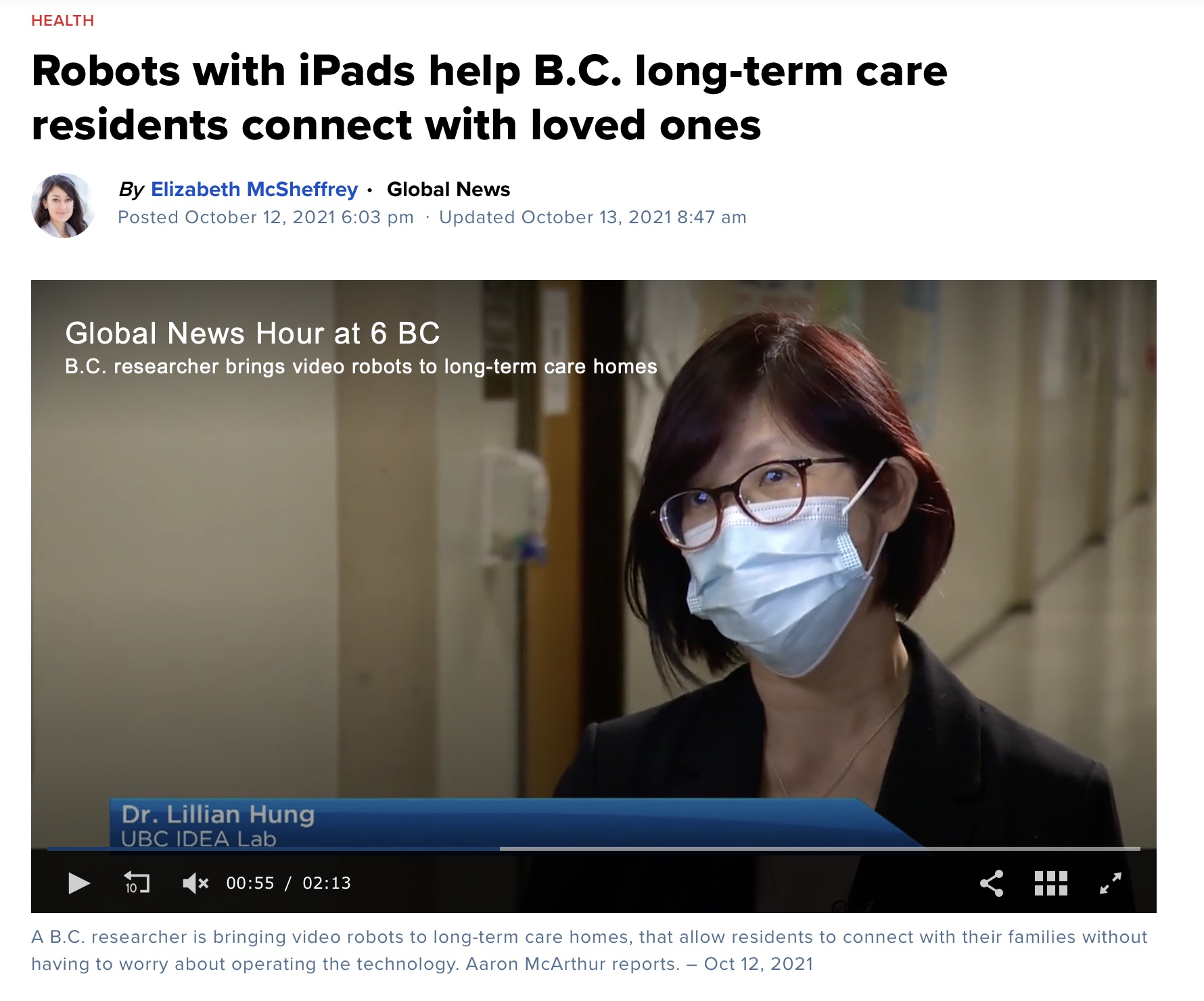
Posted October 12, 2021 6:03 pm, Updated October 13, 2021 8:47 am
Publications and Conferences
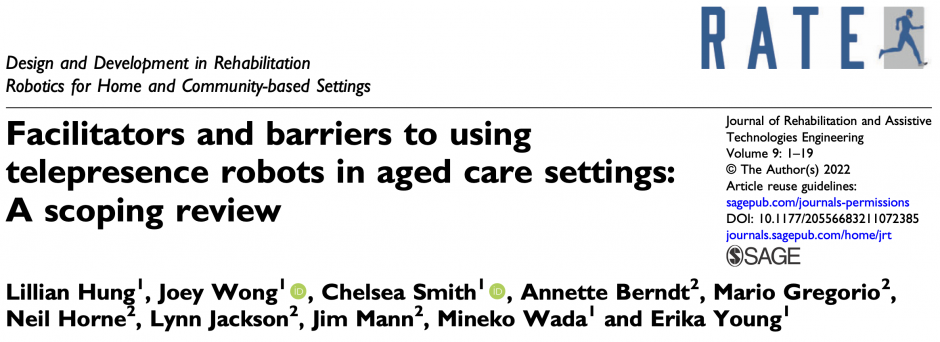
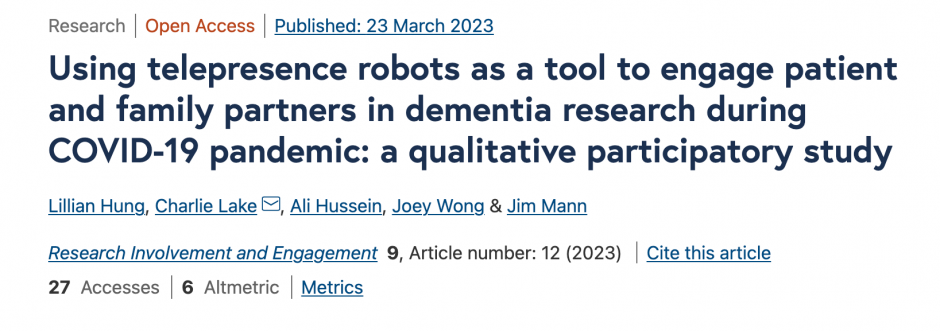
Our publications are ongoing. We currently are reviewing and working on multiple papers on a diverse set of topics.
Conferences attended:
- Canadian Association on Gerontology (2021)
- 31st Alzheimer Europe Conference (2021)
- 17th Annual ACM/ IEEE International Conference on Human-Robot Interaction (2022)
- West Coast Conference on Aging (2022)

Engagement
Our team has participated in multiple information sessions and even reached out for help over social media! Knitters in the community came together and helped create telerobot ‘cozies’ to help reduce the brightness for staff and residents at our sites.
To help spread the word we’ve also created mugs, reusable tote bags, multiple training materials including information packages and YouTube videos on introducing the robot and how it works. Our staff champions and research team members got involved in a Halloween Trick or Treat session!


Video Gallery
Photo Gallery
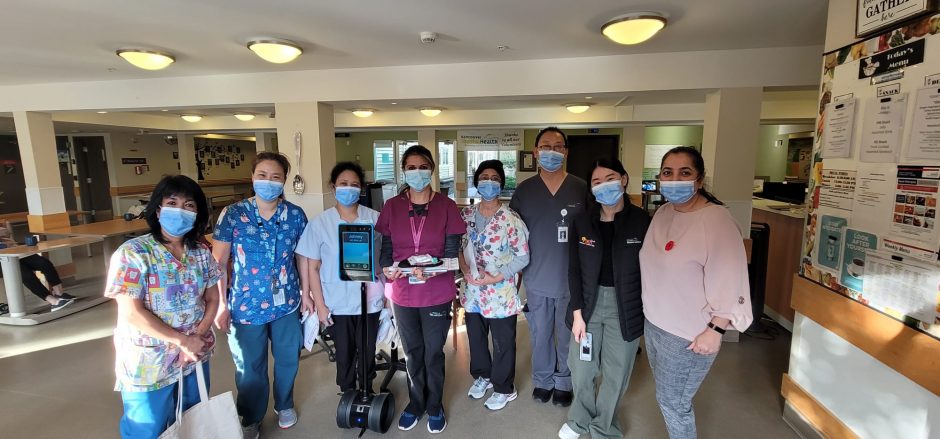
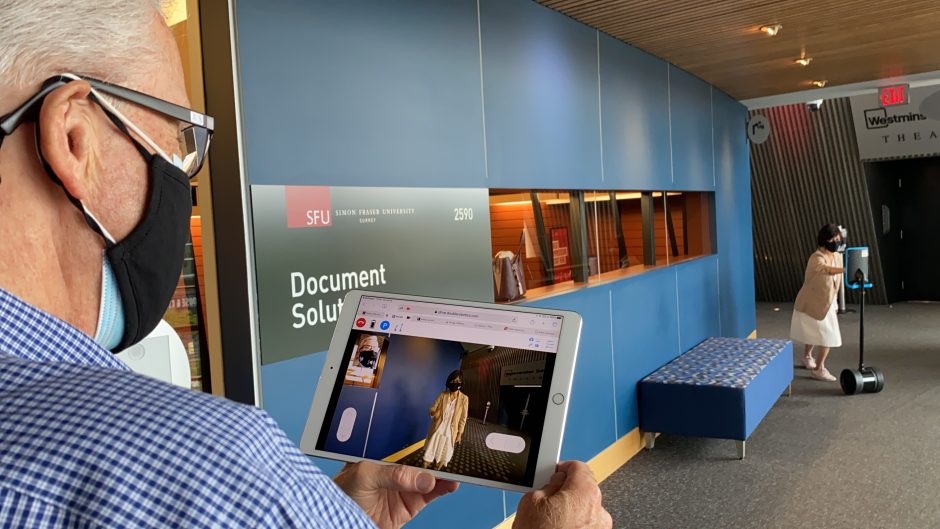
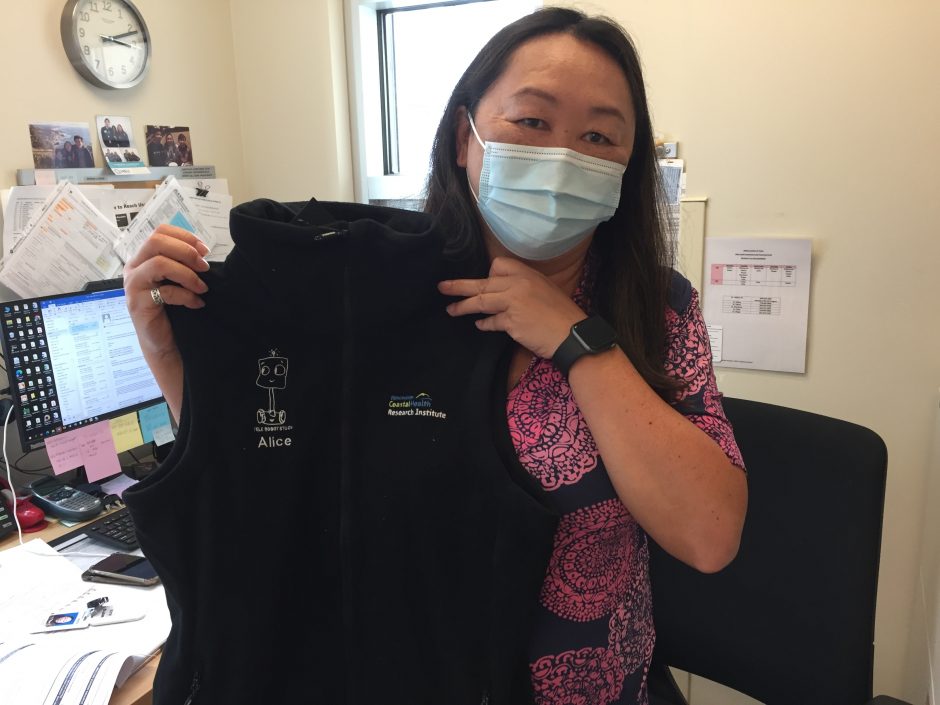
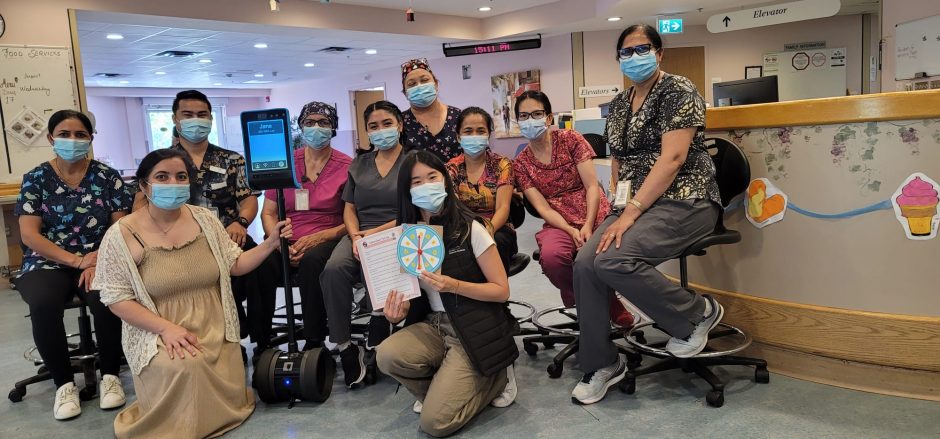
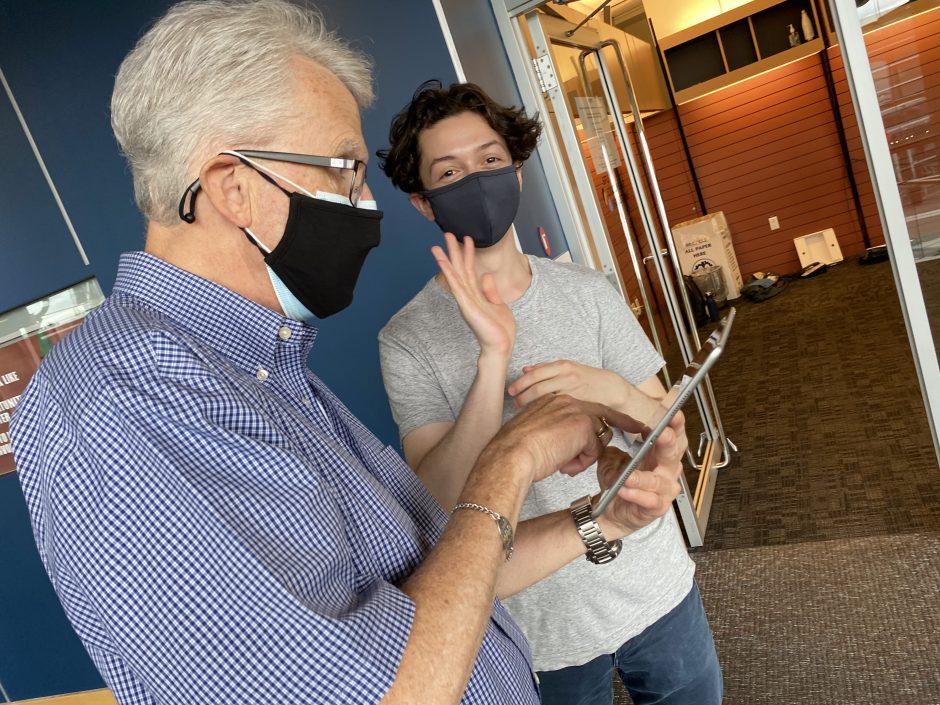
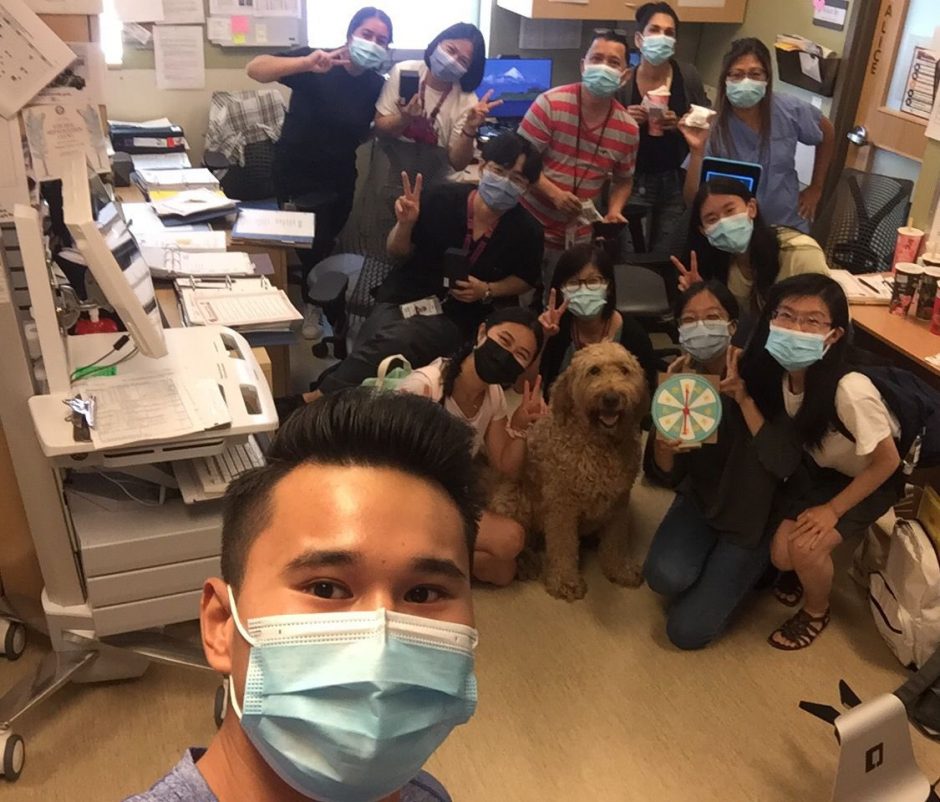
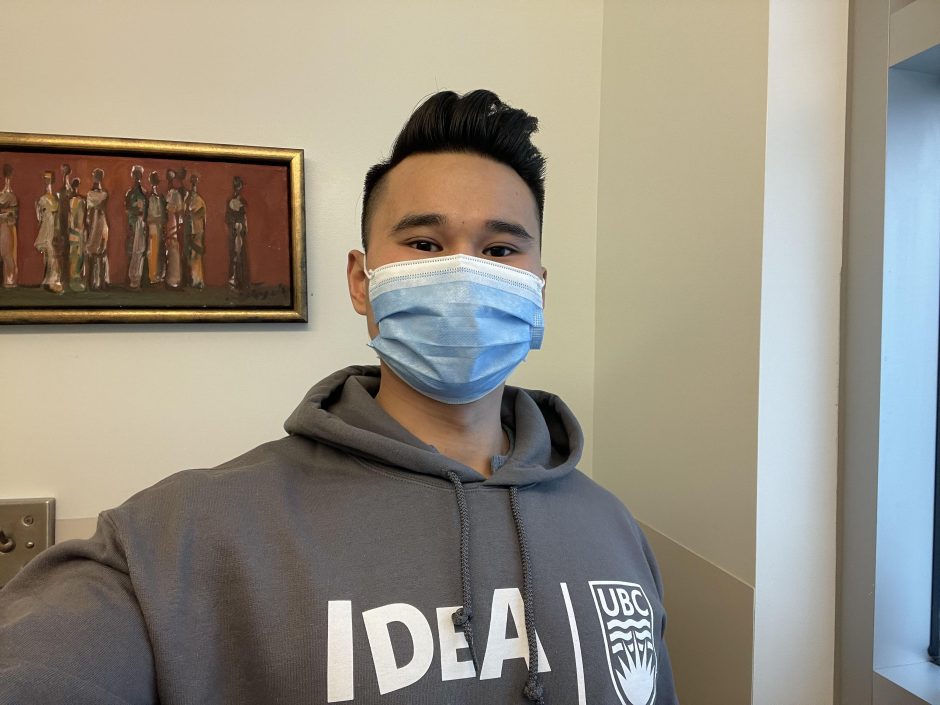

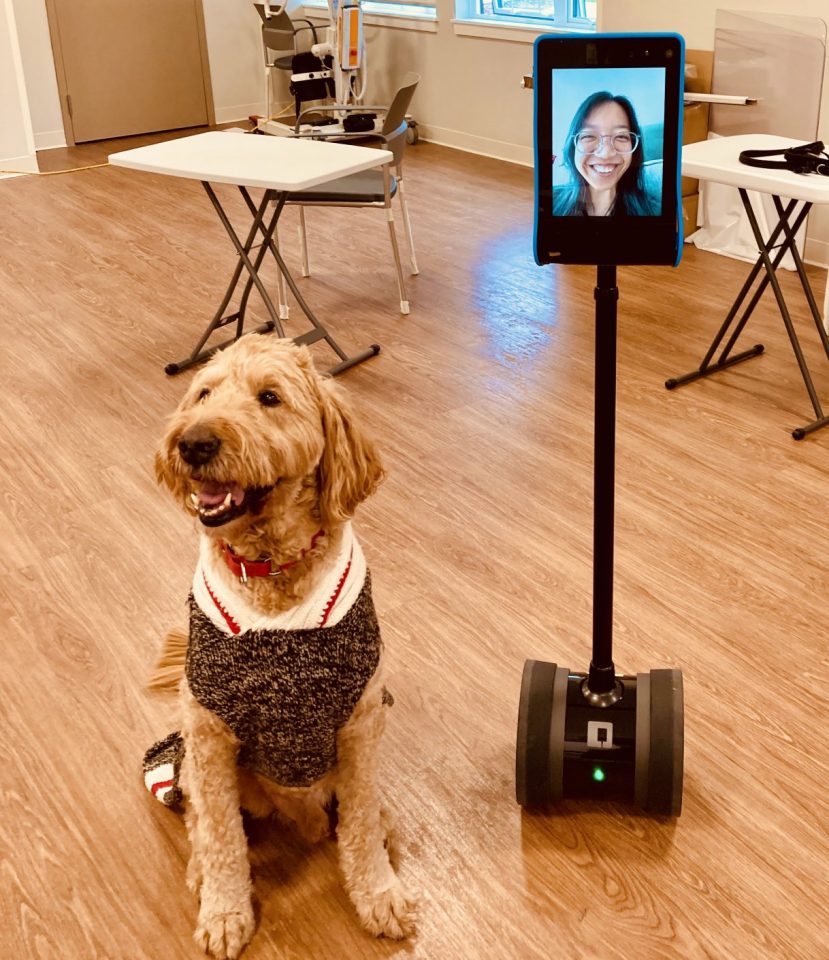
About Our Team
We are a team of unique individuals who have shared values towards working together towards the improvement of dementia care. Our multi-disciplinary team includes students, researchers, frontline staff, leadership, community partners and field experts, families, and people with lived experience. The research team has been working closely with this Public Advisory Committee (PAC). The PAC provides input and influences decision-making for the whole research project. They are actively involved in joint planning and taking action to address challenges.
Click here to read one of our team member’s [staff champion] story here!


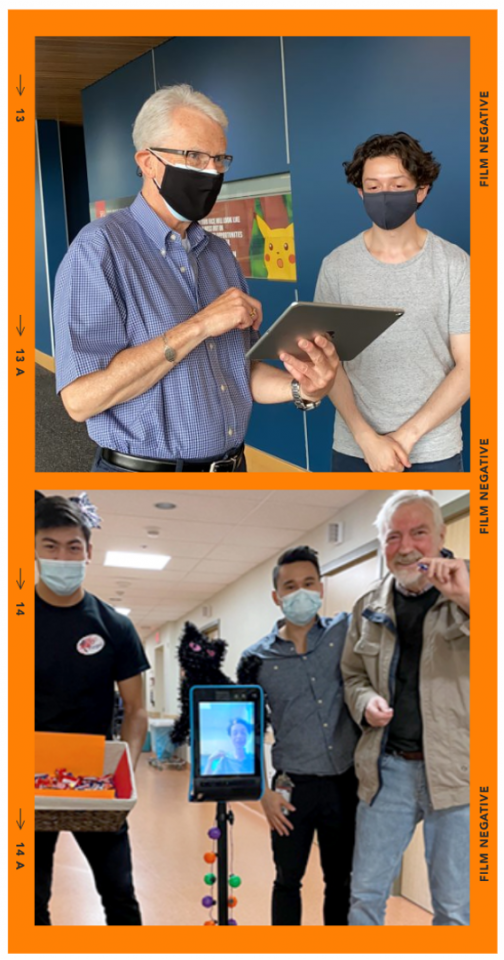
P.E.I.R.S
As we progress through our project, we are reflecting on our research process of engaging patient and family partners. P.E.I.R.S or Patient Engagement in Research Scale, developed by Dr. Clayon Hamilton, is a tool developed to measure the degree of meaningful engagement through collaboration in research from a person with lived experience. Our P.E.I.R.S team is conducting multiple interviews to understand and reflect on the perspectives of our patient and family partners to better meet our goal of learning and growing together.
Meet the Team!
Lillian Hung (Project Lead), Jim Mann (Project Co-lead), Annette Berndt, Mario Gregorio, Lynn Jackson, Lily Wong, Lily Ren, Neil Horne, Mineko Wada, Krisztina Vasarhelyi, Joey Wong, Erika Young, Nazia Ahmed, Charlie Lake, Chelsea Smith, Evangeline Tsevis, Karen Wong, Ali Hussein, Grace Hu, Sophie Yang, Gloria Loi, John Chang, Cates Bayabay, and Jessica Kwan.
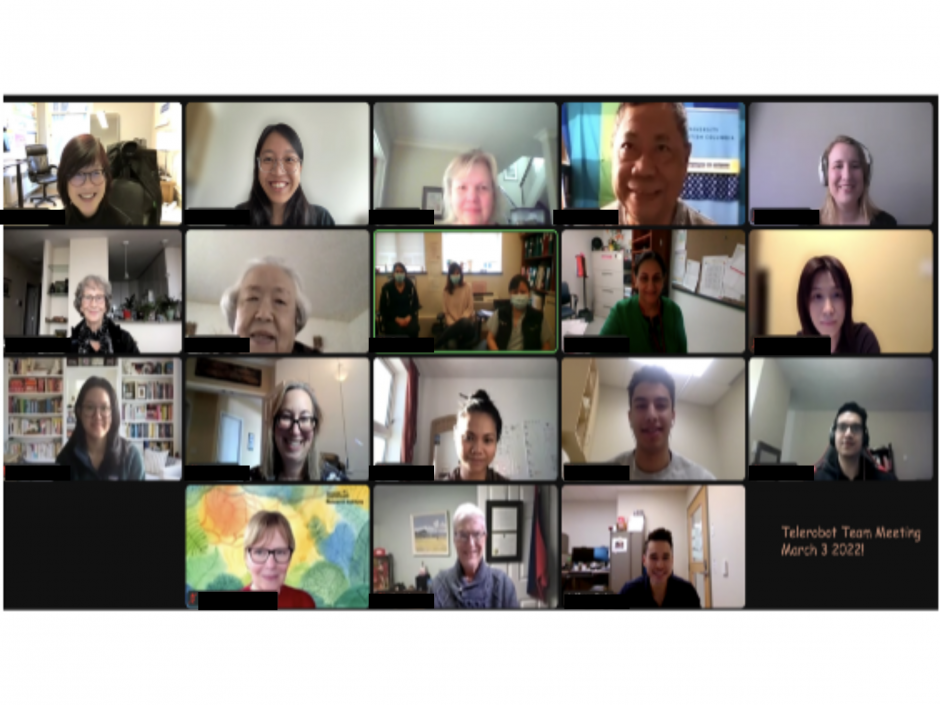
Thank you to our sponsors and community partners for making this research possible!
Funded by: Vancouver Foundation, VGH & UBC Hospital Foundation, Richmond Hospital Foundation, Canada Research Chair, UBC
Community Partners: Alzheimer Society of British Columbia, Vancouver Coastal Health Research Institute







